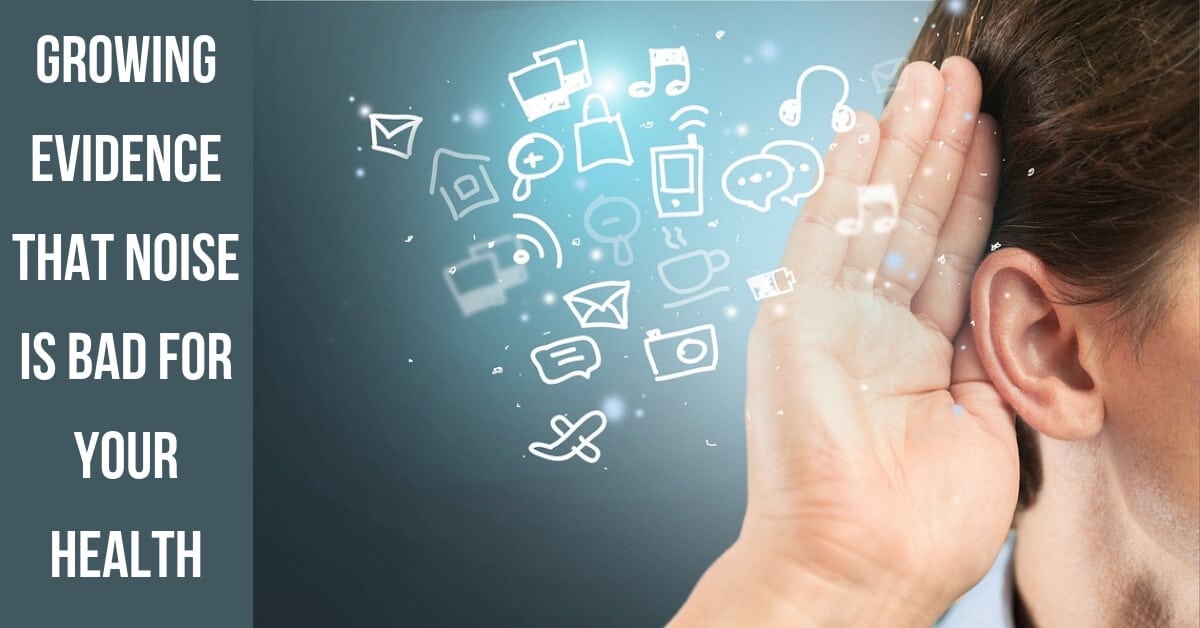
Noise is becoming a major issue in cities and towns across the country, and recent studies show that rising noise levels are even worse for your health than one might think. From noisy elementary schools to construction sites and public transit stations, we’re exposed to dangerous noise levels every day. On the commute to work, at the gym, or even with the grandkids in the park, noise surrounds us all day every day. Our jobs expose us to a lot of noise, and even our leisure activities are rarely quiet.
New Noise Pollution Guidelines for Leisure Activities
The World Health Organization (WHO) recently released new noise pollution guidelines, aimed at reducing noise in our cities. These target leisure noises and warn about the dangers of certain venues such as restaurants, pubs, bars, and nightclubs, which can all be dangerously loud for our hearing health. It also makes recommendations for noise levels at the gym, in fitness classes like your favorite spin class, and events in large venues, such as sports events or concerts. Some of these places are so loud that even a few minutes of exposure to these sound levels will permanently damage your hearing, lead to tinnitus, and leave you straining to follow conversations. It’s recommended that volume levels be monitored and reduced to protect the hearing of everyone living in our cities.
Recommendations for Safe Listening Practices
Another area of concern is listening to music or other media using personal listening devices such as your phone, iPod, or MP3 device. More and more often, people go about their lives with earbuds in their ears, playing loud music to drown out all the city noise they don’t want to hear. While this might seem like a way to get some peace and quiet, far too many people have unsafe listening practices, and listen for far too long at dangerously loud sound levels. Children and teenagers are especially at risk of hearing damage from earbud use, since they’re less likely to be cautious with sound levels and might not realize the risks to their hearing health or the long-term consequences of hearing loss.
It’s recommended that you only listen with your head phones for 60 minutes, and keep the volume under 60% so you won’t be risking your hearing. Set parental controls on your child’s phone, restricting their ability to crank up the volume. Take breaks often, and give your ears a chance to rest.
How Noise Affects Health
Every year we’re discovering new ways that noise pollution affects health. Exposure to excessive noise increases rates of heart disease and can lead to high blood pressure. Even something as seemingly insignificant as exposure to high levels of traffic noise has been linked to higher rates of obesity and diabetes. People living in noisy neighborhoods are more likely to have trouble sleeping and complain of irritability, annoyance, and stress. Exposure to excessive noise also leads to worse mental health, and living with too much noise reduces overall quality of life.
Noise Exposure and Hearing Loss
Not only is noise detrimental to your overall health, noise exposure also leads to hearing loss, and those with noisy jobs and hobbies, or who live in noisy cities, are at a much higher risk of damaging their hearing. Noise Induced Hearing Loss (NIHL) is one of the main forms of hearing loss to affect children, teens, and adults, and rates of NIHL continue to rise.
Treating Hearing Loss
Untreated hearing loss affects social and intellectual development in children and teens, and can lead to social isolation and depression in adults. Living with untreated hearing loss has the potential to damage close relationships and prevent career advancement.
Pacific Northwest Audiology
If you’re worried about the effect of noise exposure on your hearing, visit us today at Pacific Northwest Audiology to find out more about noise induced hearing loss and ways of protecting your hearing. Have you been struggling to follow conversations, or feel like your hearing isn’t as sharp as it once was? A hearing test will determine your level of hearing loss and help you pick the perfect device that will have you hearing clearly, following conversations with ease, and improving your overall quality of life.
